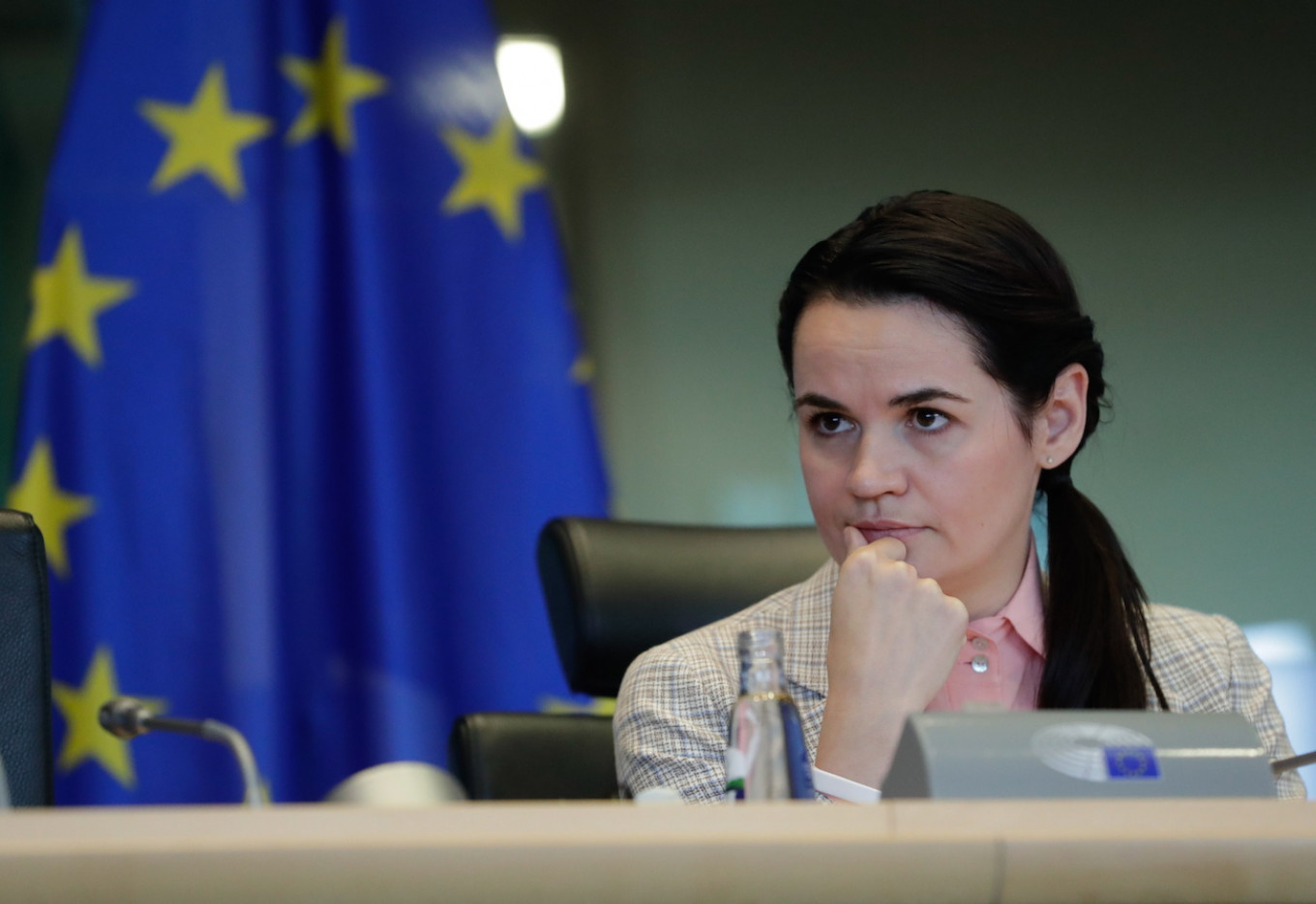
Once a political novice, Belarusian opposition leader Svetlana Tikhanovskaya is joining Europe’s diplomatic big leagues but risks undermining her own cause in the process, experts said.
After meeting French President Emmanuel Macron this week, the self-proclaimed victor of Belarus’s presidential election in August is set to meet German Chancellor Angela Merkel.
The high-profile meetings are part of a campaign focused on European leaders with the aim of pressuring Belarus’s long-term leader Alexander Lukashenko into holding new elections.
But Tatiana Kastoueva-Jean, head of the Russia/NIS (Newly Independent States) Centre at the French Institute of International Relations, said this diplomacy could be “dangerous.”
“These meetings with Western leaders could be considered a provocation by Russia and by Lukashenko and partly justify their claim that the West is interfering,” she said.
The concern is shared in diplomatic circles.
Following Tikhanovskaya’s meeting with Macron this week in Vilnius, a French diplomatic source said: “Tikhanovskaya must not become a Western icon. She should be a Belarusian icon instead.”
Anna Colin Lebedev from Paris-Nanterre University said meetings with Western leaders gave Tikhanovskaya greater legitimacy but were “a double-edged sword” since they could position the Belarusian opposition as pro-European.
But she said the opposition had little choice after Russian President Vladimir Putin’s full-throated endorsement of Lukashenko.
“It is Russia that has ensured the only possible interlocutor for Belarusians in the international community is Europe,” she said.
‘Too much attention’
Tikhanovskaya fled Belarus in the aftermath of the Aug. 9 election amid a deadly crackdown against unprecedented mass protests calling for an end to Lukashenko’s 26 years in power.
She crossed into EU and NATO member Lithuania and has received strong support from the ex-Soviet Baltic state, as well as from the leaders of Poland, which also neighbors Belarus.
While the EU does not recognize the result of the election, it has stopped short of calling Tikhanovskaya the victor and is instead pushing for fresh elections with international monitors.
Her efforts have prompted scorn from Lukashenko and Russia.
This week, Lukashenko was quoted by his spokeswoman as saying that Macron was “paying too much attention” to Tikhanovskaya and this could “create a problem in his personal life”.
On the day of the meeting, Putin condemned “unprecedented external pressure” on Belarus and said Russia’s support was “all-weather.”
His spokesman Dmitry Peskov said that Macron “seems to support this Belarusian citizen.”
Perhaps mindful of the risk of being seen to interfere, Merkel has been more cautious.
She told German MPs on Wednesday that Lukashenko should begin “a dialogue with the people… without interference from east or west.”
‘No personality cult’
Tikhanovskaya herself, who only joined the presidential election campaign after her blogger husband was detained when he tried to register as a candidate, has said she does not have political ambitions beyond a new vote.
The 38-year-old former English teacher has said she will not be a candidate in the election, which she wants to be held by the end of the year.
Colin Lebedev said that for Belarusians taking part in protests she is more of a “spokeswoman” representing them than their official leader.
“Part of her attraction is her aversion to a political career… There is no personality cult surrounding Tikhanovskaya,” she said.
Protesters in Belarus said any high-profile meetings for Tikhanovskaya were welcome attention for a movement that risks slipping down the priority list for world leaders.
“It’s good, it’s a positive sign for us,” said Alexander Gruzdilovich, a tech industry worker, although he cautioned that “to get rid of Lukashenko you have to speak to Putin.”
Another protester in the streets of Minsk, Anna Potapenko, said: “The more the international community focuses on Belarus… the better. Any third party involvement is welcome!”
